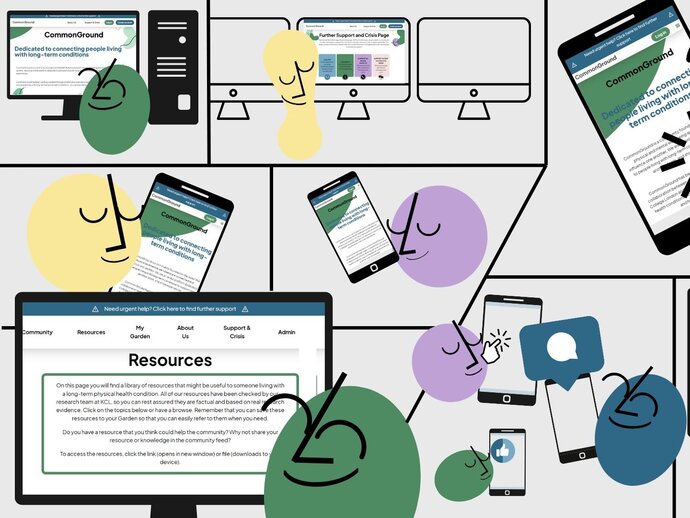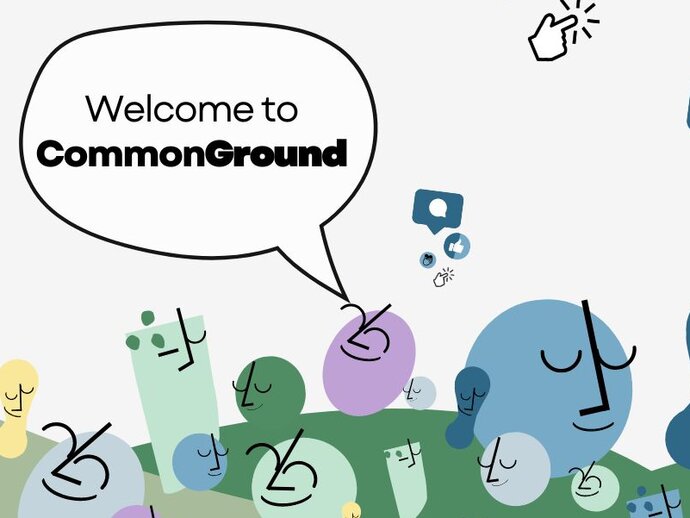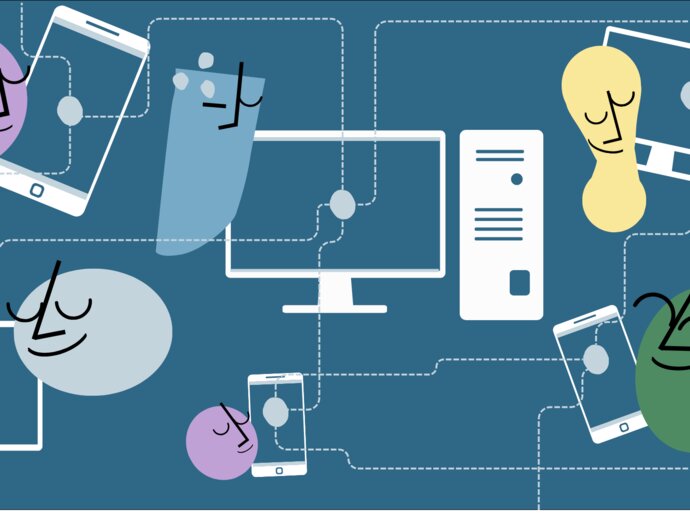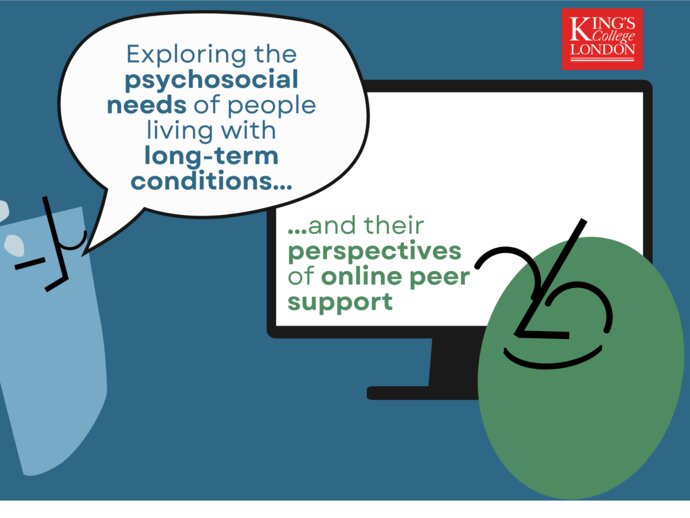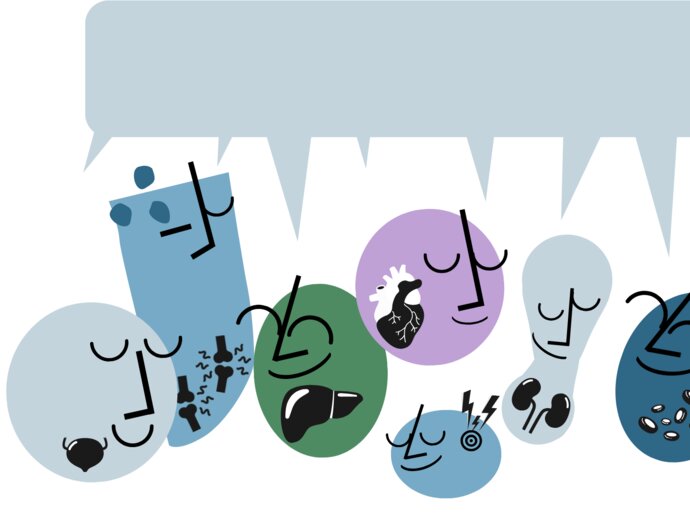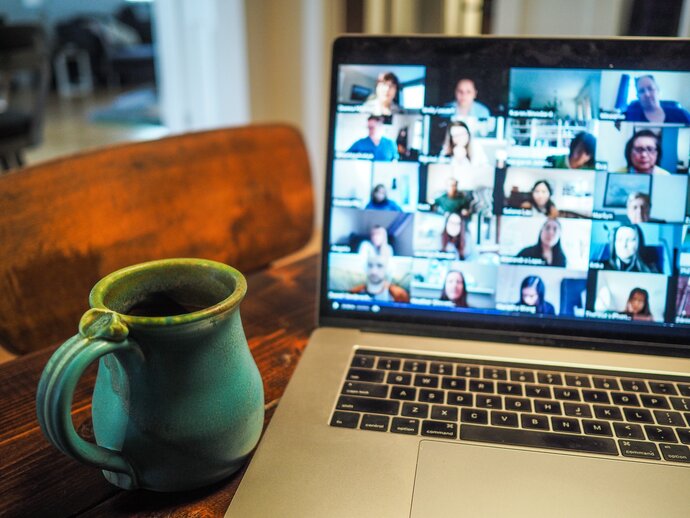CommonGround: Online peer support for preventing comorbid depression in people with long-term conditions
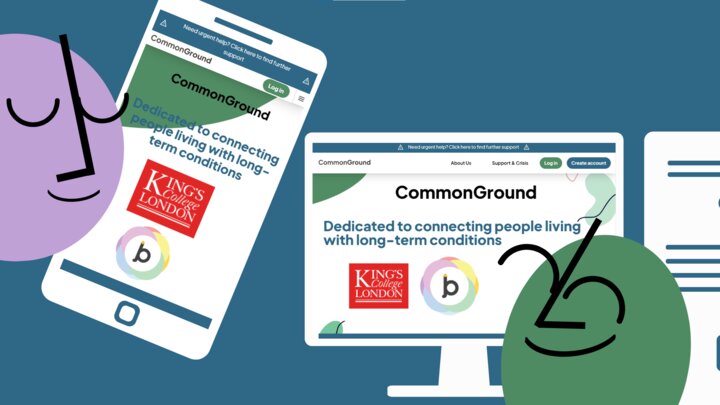
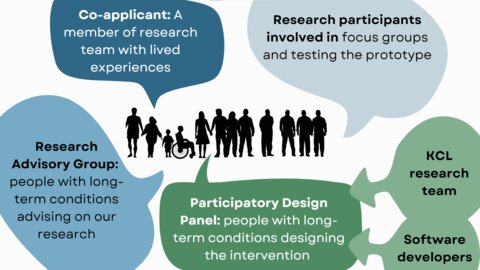
An exciting new intervention, called CommonGround, has been developed through our research collaboration based at King’s College London. The online CommonGround platform offers a peer support forum and library of evidence-based self-help information to help people with long-term conditions manage their physical and mental well-being.
We believe building a community that considers physical and mental health is important to support the whole person. This belief is driven by the voices of our collaborators with long-term conditions. This work is vital because some people with long-term conditions experience low mood or mild symptoms of depression, but unfortunately, they are rarely offered support or help with these symptoms. Early intervention is key to avoiding the progression of low mood into more serious problems like clinical depression (or major depressive disorder).
Throughout our research and the creation of our platform, we are working in partnership with people living with long-term conditions through a process called co-production. This ongoing partnership ensures their voices and needs are instrumental in guiding everything we do. We are proud that our team includes:
· An advisory group with members of the public living with long-term conditions who advise on the wider research processes, such as how we will communicate with participants and find out what they think of our platform.
· A patient and public participatory design panel, who designed the online peer support platform, helping to answer questions like “What features should the platform have?”, “How should it look?”.
· An external software design agency, BitJam, which has built and host the online platform.
· Researchers and clinicians, and a co-applicant with lived experience.
We have gathered reflections from some of the team members on their experiences of the process of collaborating to create the platform so far here.
Developing the platform
The initial stages of our research used focus groups to explore whether people with long-term conditions would want an online peer support platform with evidence-based, self-help information to help them learn how to better self-manage their physical and mental health. Insights from these focus groups gave clear guidance on how people with long-term conditions want online peer support to be delivered to support their mental and physical health needs. To find out more about what people told us, read our blog piece or the accompanying research publication.
Next, over a series of workshops, the Participatory Design Panel, software developers, and KCL team designed and built the intervention. Finally, we asked a new group of people living with long-term conditions to test out the platform. This usability testing involved the ‘Think Aloud’ technique, where people are encouraged to speak aloud their thoughts as they use the platform prototype. For example, if they struggled to log in, they would be encouraged to narrate as they encountered and tried to solve the problem. In this blog piece, Elly Aylwin-Foster (our co-applicant with lived experience) and Hannah Rowlands (Research Assistant) reflect on the experience of being involved in co-production that had to be done remotely online (rather than in person) during the COVID-19 pandemic.
What has happened recently?
In 2024, our team conducted a three-month randomised controlled trial of CommonGround. During the trial, we asked our participants to give feedback on what they think about the platform and their thoughts on participating in the trial. The data we have collected will let our team understand what people liked and did not like about the CommonGround platform, and what changes might need to be made. It will also allow our team to assess how feasible it may be to run a larger trial of the platform where more people test it out, to ultimately assess how effective CommonGround may be at helping people with long-term physical health conditions manage their mental health.
What is happening now?
At the moment, our team are busy analysing the data we collected from our participants via questionnaires. We also interviewed a selection of our participants, to explore their opinions and feedback in more depth, and so our team are also summarising this data too. Our team will publish our findings in an academic journal.
The journey of bringing CommonGround into reality as an intervention to support the mental well-being of people with long-term conditions is ongoing. Please watch for project updates as we progress to the next exciting stages.

